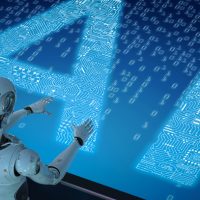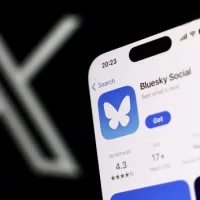
 PhonlamaiPhoto/iStock(LAS VEGAS) — Two words are dominating CES, the annual consumer electronics extravaganza, underway this week in Las Vegas. Artificial Intelligence.
PhonlamaiPhoto/iStock(LAS VEGAS) — Two words are dominating CES, the annual consumer electronics extravaganza, underway this week in Las Vegas. Artificial Intelligence.
Thanks to Hollywood, AI may conjure thoughts of ultra-smart computers lost in a world somewhere between human and machines. But in reality, AI is already in many of the tech devices we use every day.
“AI is really the ability for machines to learn from data and adapt,” Naveen Rao, vice president and general manager of the Artificial Intelligence Products Group at Intel, told ABC News. “It’s much like any animal. If you want to teach your dog to rollover there’s a paradigm we use to do that.”
For example, it’s crucial for autonomous vehicles to adapt and become better drivers. To do that AI has to work in full gear. The vehicles have to follow commands, anticipate what other human drivers will do around them and react in real time. Autonomous vehicles should also learn from mistakes and improve their capabilities.
“When people first started this journey they thought it would be relatively easy, you just go and follow some lines, right? Turns out it’s a really hard problem because it’s more than just following lines,” said Rao. “You have to discern the intent of the other drivers, you have to watch out for pedestrians and kids to make a solution that you can really deploy.”
Companies, including Intel, are spending big bucks now to develop better AI. Home device makers want Alexa-like units to learn their human owners’ likes and dislikes. One day your oven might anticipate what you probably want for dinner and could get started on that dinner before you come home from work.
LG is promoting a future in which your appliances will know your desires and take action. Your refrigerator may know when you’re short on food and order you more, without you having to intervene. Or your washing machine could analyze clothes and wash them the way it knows you like those clothes. LG wants its products to recommend settings – whether it be a TV or a washing machines – based on what it knows you like.
Samsung is taking a similar route, allowing its washing machine users to ask a personal assistant for advice in washing their clothes.
Even your toothbrush could soon include AI. Oral-B’s Genus X toothbrush reads a user’s brushing style and will analyze how to brush better.
Some of the AI actually looks very human. Multiple companies are showing off robot assistants at CES. They will follow you around your home and offer to get things for you, answer calls and play music.
Back at Intel, engineers are working with Chinese mega e-retailer Alibaba to use AI tech to 3D track Olympic athletes at the 2020 Tokyo Games. Without using special suits, the two companies plan to use AI to map how an Olympic athlete’s body functions in competition, which could allow coaches and athletes to better train. It can also allow analysts and broadcasters to better describe action in front of them as they can slow down the action and pick apart how an athlete’s body moves by reviewing the AI animation.
It’s all about learning your habits and tweaking technology to adapt to your life.
Copyright © 2019, ABC Radio. All rights reserved.















